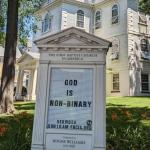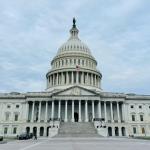“Under modern conditions, where almost everyone lives in communities in which diversity has taken the place of consensus, certainty is much more difficult to come by. Relativism can be described as a world view that not only acknowledges but celebrates the absence of consensus. So-called post-modernist theorists like to speak of narratives and, in principle, every narrative is as valued as any other. The moral end result of this world view can be captured by imagining a television interview with a cannibal. “You believe that people should be cooked and eaten. I certainly don’t want to be judgmental, but the audience will be interested. Tell us more.” (Laughter.) This is not all that fictitious.
Fundamentalists respond to the same situation of certainty-scarcity by seeking to regain absolute certainty about every aspect of their world view. No doubt is permitted. Whoever disagrees is an enemy to be converted, shunned or, in the extreme case, removed. The last two centuries of history have made it very clear that there are secular as well as religious fundamentalisms. Both relativism and fundamentalism threaten the basic moral order without which no society, least of all a liberal democracy, can exist: relativism because it makes morality a capricious game, fundamentalism because it balkanizes society into mutually hostile camps that cannot communicate with each other,” – Peter Berger, in a dialogue on Relativism and Fundamentalism: Is There A Middle Ground?
I think he wrongly equates postmodern theory with radical relativism. But, I should know, that’s a common misperception.
HT: Andrew Sullivan















